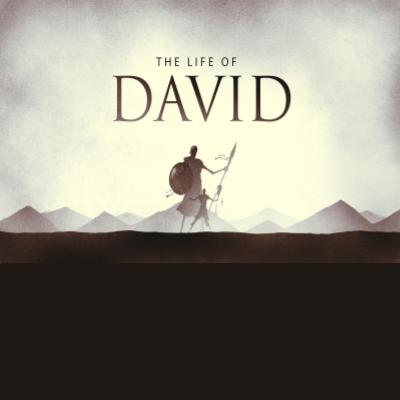SERMON SUMMARY
David is a study in contrasts. He was a man after God’s own heart, but like us, he was capable of great sin. Adultery, murder, deception—the list goes on and on. But from this story about David and Bathsheba we also learn that God pursues us to forgive and restore (2 Samuel 11). It is a sad—but captivating—story. But the important question is: “What can we learn from the story?” This happens at the pinnacle of his career. He’s a hero, he’s powerful and rich—and then he get’s another man’s wife pregnant. That is one of the biggest “uh-oh” moments in the Bible. We have all done things that have come back to haunt us, so we have some sense of how David must have felt: that sickening, panicky feeling in the pit of your stomach. And things spiral down from there.
David was not where he was supposed to be, not doing what he is supposed to be doing. It was in the spring, when kings go out to battle—but David sent his armies out under others’ command. He is supposed to be out there leading and inspiring his troops, but David is being irresponsible. The same can be true for us: when we are at the wrong place at the wrong time, doing something other than what we ought to be doing, we can get into a lot of trouble. We get in trouble when we fail to fulfill our God-given purpose: being transformed into extraordinary followers of Jesus Christ. When we take our eyes off that purpose, God gets smaller and the lure of the world presents a whole new set of purposes to live for. When we take our eyes off Christ, we find ourselves wandering into trouble. That’s what David did and that is where his trouble began.
When Bathsheba reports that she is pregnant, David’s world starts spinning out of control, and so he comes up with a plan to fix the situation (2 Samuel 11:10-17). In just one chapter of Scripture, a man after God’s own heart broke all of these commandments! He fell so fast, so far, and God was not pleased. But God is not going to leave David there, so he sends Nathan to David to confront him about his sin. Nathan tells a story to set a trap, and when David responds, he springs the trap (2 Samuel 12:1-7). All of us need a Nathan in our lives—someone whom we give permission to speak truth to us in love, even when it hurts. Who is that for you? Who have you given permission to speak to you and tell you when you have stepped out of bounds, to tell you about your blind spots?
Nathan is such an important figure in this story. His courage is phenomenal. He is going to the King of Israel, the most powerful man around and he is going to confront him with his sin. And remember, David has already shown himself capable of killing an innocent men. Would you have confronted David? Nathan could have lost his life for doing this, but God told him to go, and he did, even though he knew that it might cost him something. But the goal is life-change, not mere confrontation. To do that, we speak the truth in love. And guys, we need to be Nathan more often than we are.
Do you ever become discouraged because the good guys in the Bible often become the bad guys in the end? That seems to happen a lot (think: “David…Abraham…Moses”). All of these people in the Bible that start off as role models, and then they blow it. And that’s disappointing, because we have looked up to them. We see them as examples of what we have to do to please God. But listen, these stories in the Bible are not so much about David and Daniel and Moses and Abraham, as they are about God and what he is doing. The story about David first teaches us something about ourselves so that then we can learn something about God. David’s story teaches us that we are all capable of the worst. Some of you are thinking: “That David. What a scoundrel. I would never do something like that.” Do we really think that we are better than David, Abraham, Moses? The Bible says, “Let him who thinks he stands take heed that he does not fall.” (1 Corinthians 10:12).
But this story also is teaching us that God relentlessly pursues us to forgive and restore us (2 Samuel 12:13). God shows us David’s filthy laundry because he wants us to realize that we too are capable of such sin, and no matter how great our sin, He still loves us, and he still pursues us so that he can forgive and restore us. Now let me make something clear: God is not saying, “Sin is no big deal.” No! David’s sin could only be forgiven because of what Jesus was punished for our sin. David didn’t have to die, because Jesus was going to!
David also gives us an example of how to confess our sin. When David was confronted with his sin—he confessed it to God (Psalm 51). And that is what we are called to do. To confess means to agree with God about our sin, that it is wrong. When we repent and confess, God forgives and cleanses (Psalm 32:1-5). There is nothing but joy and forgiveness and restoration on the other side of confession. Let God be praised for that!
APPLICATION / CHALLENGE
- God pursues us to forgive and restore—so confess your sins and receive the restoration and forgiveness and joy that He offers.
TAKE ONE STEP
Each week, write down one doable concrete step of obedience, small or large that you will put into practice this week. (James 1:22: “But prove yourselves doers of the word, and not merely hearers who delude themselves.”)


